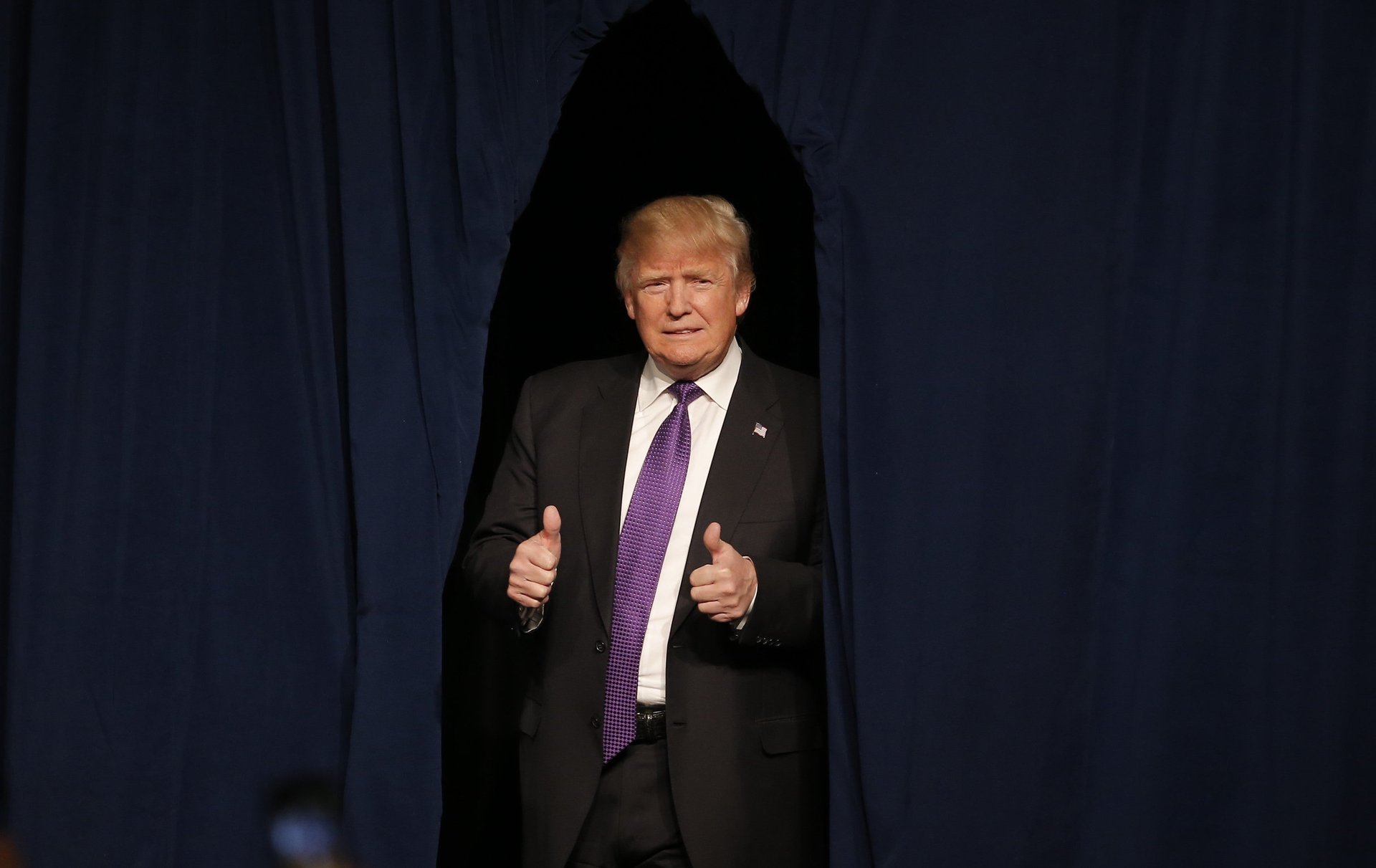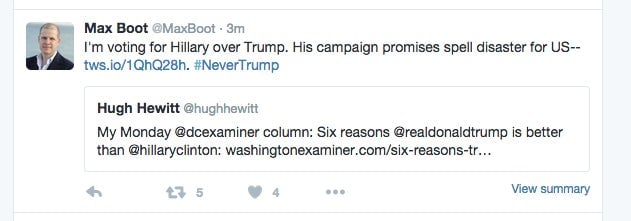Trump’s splintering of the Republican party has begun
After months of denial that Donald Trump could actually win the Republican nomination, conservatives—politicians, activists, thinkers, and even families—are grasping that he probably will.


After months of denial that Donald Trump could actually win the Republican nomination, conservatives—politicians, activists, thinkers, and even families—are grasping that he probably will.
And the angst is palpable.
The party is in “existential danger,” says one Republican operative. Republicans are experiencing an “implosion,” writes the Washington Post. Ordinarily lockstep leading conservatives are in open conflict, such as these prominent pundits:

Experts are reaching back to the Mugwump movement of the late 19th century to describe the fractures that we are witnessing in the Republican party (more on that below). Meanwhile, plenty of precedent in the 20th century foreshadows the possibility of mass Republican dissent, says Nate Silver, the political forecaster:
In 1964, 20% of Republicans rejected nominee Barry Goldwater and voted for the Democrat and eventual winner, Lyndon Johnson; in 1992, 27% of Republicans snubbed George HW Bush and supported Bill Clinton, who also won. If a similar Republican swing happens this year, Trump will be finished.
Of course Democrats, too, have crossed political lines and voted Republican. But, as an outsider, Trump seems much more exposed to the dynamic than does Democratic frontrunner Hillary Clinton, a thoroughly known quantity to her base.
That’s where the trouble begins
Let’s be clear: the Republican Party will survive Trump’s candidacy. But it will do so with the prospect of gaping fissures. Silver flags the possibility of a once-a-half-century party realignment in which the Republicans transform into something else, at this point unknown.
There is a scenario for an outright rupture, though—one that threatens the party’s ability to continue on as the enduring force it has been since Lincoln. The greatest danger is in the event that Trump wins the presidency, said Hans Noel, a professor at Georgetown University. In an email exchange with Quartz, Noel plays down the prospect of Republican disintegration, but says that “if Trump is president, that’s a whole different story.”
Heather Richardson, a historian at Boston College, tells Quartz that she’s reminded of the 1884 presidential race, in which a decisive number of Republicans fled the GOP nominee—a financially tainted candidate named James Blaine—and threw the election to Democrat Grover Cleveland. These Republicans, dubbed Mugwumps, went on to be a force in both parties and led to the formation of Republican progressives under Theodore Roosevelt, Richardson explains.
“You can say we have the potential for modern-day Mugwumps,” she says.
The likelihood is that, after the next rounds of primary elections that begin today (March 1) and extend for two weeks, Trump and Clinton will emerge as the all-but-certain major party candidates for president. And Republican politicians and operatives will probably by and large put aside their misgivings and line up behind Trump, notwithstanding the passionate protests of conservatives who vow they will never vote for him.
Yet a substantial number appear likely to peel off and vote for Clinton, stay home, or write someone in. And this is because there is one subject on which many of Trump’s supporters and livid detractors agree—they detest him and think he will lose and, in that case, the party can repair itself and move on.